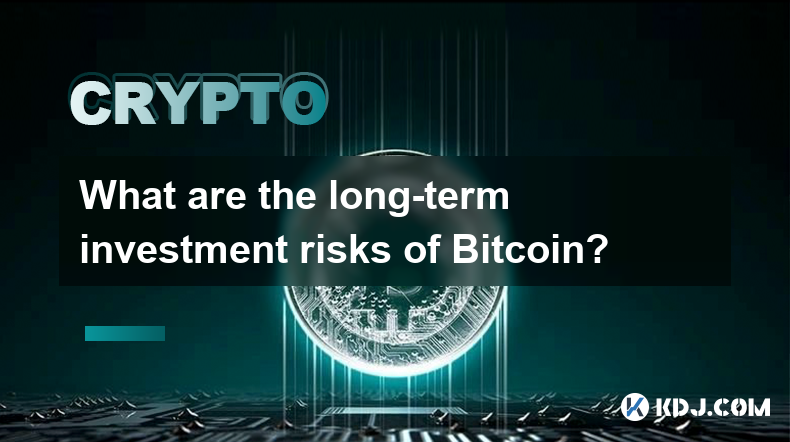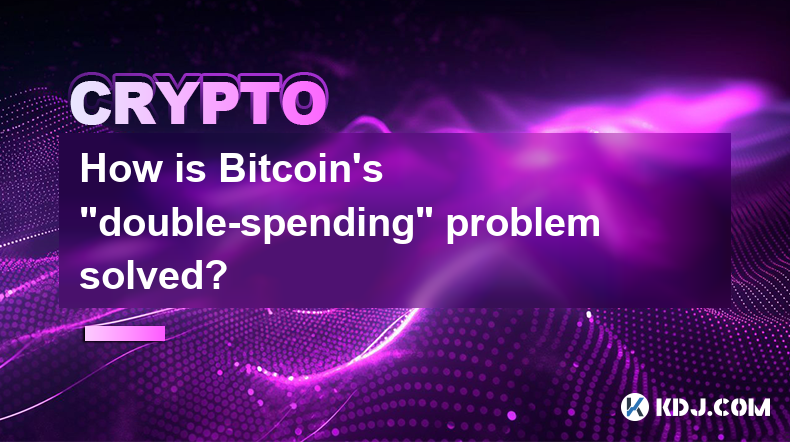-
 Bitcoin
Bitcoin $95,566.6589
-0.82% -
 Ethereum
Ethereum $2,691.5583
-4.31% -
 XRP
XRP $2.4633
-4.87% -
 Tether USDt
Tether USDt $1.0001
-0.01% -
 BNB
BNB $639.7978
-3.74% -
 Solana
Solana $158.4654
-7.92% -
 USDC
USDC $1.0000
-0.01% -
 Dogecoin
Dogecoin $0.2301
-6.67% -
 Cardano
Cardano $0.7345
-6.16% -
 TRON
TRON $0.2462
1.64% -
 Chainlink
Chainlink $16.6313
-7.74% -
 Sui
Sui $3.2619
-4.20% -
 Avalanche
Avalanche $23.6365
-7.89% -
 Stellar
Stellar $0.3174
-5.34% -
 Litecoin
Litecoin $122.9850
-3.41% -
 Toncoin
Toncoin $3.7224
-1.50% -
 UNUS SED LEO
UNUS SED LEO $9.7686
0.30% -
 Shiba Inu
Shiba Inu $0.0...01475
-6.17% -
 Hedera
Hedera $0.2024
-5.96% -
 MANTRA
MANTRA $8.3643
-3.66% -
 Polkadot
Polkadot $4.7350
-7.23% -
 Hyperliquid
Hyperliquid $21.0901
-13.15% -
 Bitcoin Cash
Bitcoin Cash $314.2815
-5.18% -
 Bitget Token
Bitget Token $4.9711
-1.95% -
 Ethena USDe
Ethena USDe $1.0000
0.02% -
 Dai
Dai $1.0000
-0.01% -
 Uniswap
Uniswap $8.5526
-6.61% -
 Monero
Monero $234.0433
-0.95% -
 NEAR Protocol
NEAR Protocol $3.3181
-4.47% -
 Pepe
Pepe $0.0...08907
-7.84%
How to sell Stacks(STX) coins safely
To safely sell STX coins, choose a reputable exchange like Coinbase, create an account, verify your identity, deposit coins, place a sell order, confirm the transaction, and secure your funds in a secure wallet.
Dec 09, 2024 at 03:00 am

How to Sell Stacks (STX) Coins Safely
Stacks (STX) is a blockchain platform that enables the development of smart contracts and decentralized applications on Bitcoin. If you're looking to sell your STX coins, it's important to do so through a reputable exchange or broker to ensure the safety and security of your assets. Here's a step-by-step guide on how to sell STX coins safely:
Step 1: Choose a Reputable Exchange or Broker
The first step is to choose a reputable exchange or broker that supports STX trading. Consider factors such as security measures, trading fees, reputation, and ease of use.
- Coinbase: Coinbase is a well-established and secure exchange that supports STX trading. It offers a user-friendly platform, competitive fees, and 24/7 customer support.
- Binance: Binance is the world's largest cryptocurrency exchange by trading volume. It supports a wide range of cryptocurrencies, including STX, and offers low trading fees.
- Kraken: Kraken is another reputable exchange that supports STX trading. It offers a secure platform, low fees, and advanced trading features for experienced traders.
- Bittrex: Bittrex is a popular exchange for trading altcoins, including STX. It offers a wide selection of cryptocurrencies and competitive fees.
Step 2: Create an Account and Verify Your Identity
Once you've selected an exchange or broker, create an account and verify your identity by providing personal information and proof of identity. This process typically involves uploading a government-issued ID and verifying your email address.
Step 3: Deposit STX Coins to Your Exchange or Broker Account
If you haven't already done so, you'll need to deposit STX coins to your exchange or broker account. To do this, generate a deposit address from your account and transfer your STX coins to that address from your wallet or another exchange.
Step 4: Place a Sell Order
Once your STX coins are in your account, you can place a sell order. Select the STX trading pair (e.g., STX/USDT), enter the amount of STX you want to sell, and choose a sell order type (e.g., market order, limit order, or stop-loss order).
- Market order: A market order sells your STX coins at the current market price. It's the fastest and easiest way to sell, but you may not get the best price.
- Limit order: A limit order allows you to specify the price at which you want to sell your STX coins. It ensures that your coins will be sold at the specified price or better, but there's no guarantee that your order will be filled.
- Stop-loss order: A stop-loss order automatically sells your STX coins when the price reaches a specified threshold. It's used to protect your profits or limit your losses.
Step 5: Confirm the Transaction
Review the details of your sell order and confirm the transaction. Depending on the exchange or broker you're using, you may need to enter a one-time password (OTP) or use a physical security key to complete the transaction.
Step 6: Withdraw Your Funds
Once your STX coins have been sold, you can withdraw the proceeds to your bank account or another cryptocurrency wallet. To do this, navigate to the withdrawal section of your account and enter the amount you want to withdraw and the withdrawal address.
Additional Tips for Selling STX Coins Safely
- Store your STX coins in a secure wallet: Keep your STX coins in a hardware wallet or a reputable third-party custodian to protect them from hacks and theft.
- Use two-factor authentication (2FA): Enable 2FA on your exchange or broker account to add an extra layer of security.
- Be aware of phishing scams: Phishing attacks are attempts to trick you into revealing your personal information or private keys. Be cautious of emails or websites that look like legitimate exchanges or brokers but are actually fake.
- Check the exchange's reputation: Research the reputation of the exchange or broker you're using by reading online reviews and checking their social media presence.
- Monitor your transactions: Keep an eye on your account activity and report any suspicious or unauthorized transactions to the exchange or broker immediately.
Disclaimer:info@kdj.com
The information provided is not trading advice. kdj.com does not assume any responsibility for any investments made based on the information provided in this article. Cryptocurrencies are highly volatile and it is highly recommended that you invest with caution after thorough research!
If you believe that the content used on this website infringes your copyright, please contact us immediately (info@kdj.com) and we will delete it promptly.
- HexyDog Launches Presale with Revolutionary Tokenomics
- 2025-02-24 17:15:27
- Ripple's XRP Token Back in the Spotlight as SEC Drops Case Against Coinbase
- 2025-02-24 17:10:27
- Bitcoin (BTC) Price Today: Cryptocurrency Sees Losses on Both National and International Exchanges
- 2025-02-24 17:10:27
- Georgia Unveils Senate Bill 228, Aiming to Establish a Strategic Bitcoin Reserve
- 2025-02-24 17:10:27
- Bitcoin's Promising Climb: Will It Finally Break the $100,000 Barrier?
- 2025-02-24 17:10:27
- Could Warren Buffett One Day Want to Invest in a Money Transfer Fintech Like XRP (CRYPTO: XRP)?
- 2025-02-24 17:10:27
Related knowledge

What are the long-term investment risks of Bitcoin?
Feb 22,2025 at 05:30pm
Key PointsVolatility and price fluctuationsRegulatory uncertaintySecurity risksCompetition from altcoinsMarket manipulation and scamsTransaction feesEnvironmental concernsLong-Term Investment Risks of BitcoinVolatility and Price FluctuationsBitcoin's high volatility is a double-edged sword. While it has the potential to generate substantial returns, it ...

What are the main contents of Bitcoin's "white paper"?
Feb 21,2025 at 04:36am
Key Points:Understanding Bitcoin's Genesis: The White Paper's IntroductionA Decentralized Digital Currency: Bitcoin's Core ConceptBlockchain Technology: The Foundation of Bitcoin's Immutable LedgerProof-of-Work: Securing Bitcoin's NetworkThe Design of Bitcoin's Currency: Issuance, Scarcity, and DivisibilityBitcoin's Potential Applications and Future Pro...

How does Bitcoin's distributed ledger ensure consistency?
Feb 22,2025 at 10:06pm
Key Points:Bitcoin employs a distributed ledger, also known as a blockchain, to maintain a tamper-proof and consistent record of transactions.The blockchain is a decentralized network of computers that collectively validate and store transaction data.Bitcoin's distributed ledger ensures consistency through consensus mechanisms and cryptographic algorith...

What does the Cryptographic Fundamentals of Bitcoin consist of?
Feb 21,2025 at 12:06pm
Key PointsUnderstanding the cryptographic algorithms used in BitcoinFamiliarization with the Bitcoin blockchain and its underlying mechanicsExamination of the security measures that protect Bitcoin from attackAnalysis of the decentralized nature of Bitcoin and its implicationsDiscussion of the scalability and transaction fee issues associated with Bitco...

What is Bitcoin's relationship with blockchain technology?
Feb 22,2025 at 07:00pm
Bitcoin's Intertwined Relationship with Blockchain TechnologyKey Points:Definition of blockchain technology and its decentralized natureBitcoin's utilization of blockchain for secure and immutable transactionsThe role of blockchain in verifying and confirming transactionsEvolution of blockchain technology beyond Bitcoin's cryptocurrency applicationsUnde...

How is Bitcoin's "double-spending" problem solved?
Feb 23,2025 at 02:54am
Key Points:The double-spending problem refers to the potential for a digital currency transaction to be reversed, allowing the same funds to be spent multiple times.Bitcoin solves this problem through the use of a decentralized blockchain, a public ledger that records all transactions permanently and securely.The immutability and transparency of the blo...

What are the long-term investment risks of Bitcoin?
Feb 22,2025 at 05:30pm
Key PointsVolatility and price fluctuationsRegulatory uncertaintySecurity risksCompetition from altcoinsMarket manipulation and scamsTransaction feesEnvironmental concernsLong-Term Investment Risks of BitcoinVolatility and Price FluctuationsBitcoin's high volatility is a double-edged sword. While it has the potential to generate substantial returns, it ...

What are the main contents of Bitcoin's "white paper"?
Feb 21,2025 at 04:36am
Key Points:Understanding Bitcoin's Genesis: The White Paper's IntroductionA Decentralized Digital Currency: Bitcoin's Core ConceptBlockchain Technology: The Foundation of Bitcoin's Immutable LedgerProof-of-Work: Securing Bitcoin's NetworkThe Design of Bitcoin's Currency: Issuance, Scarcity, and DivisibilityBitcoin's Potential Applications and Future Pro...

How does Bitcoin's distributed ledger ensure consistency?
Feb 22,2025 at 10:06pm
Key Points:Bitcoin employs a distributed ledger, also known as a blockchain, to maintain a tamper-proof and consistent record of transactions.The blockchain is a decentralized network of computers that collectively validate and store transaction data.Bitcoin's distributed ledger ensures consistency through consensus mechanisms and cryptographic algorith...

What does the Cryptographic Fundamentals of Bitcoin consist of?
Feb 21,2025 at 12:06pm
Key PointsUnderstanding the cryptographic algorithms used in BitcoinFamiliarization with the Bitcoin blockchain and its underlying mechanicsExamination of the security measures that protect Bitcoin from attackAnalysis of the decentralized nature of Bitcoin and its implicationsDiscussion of the scalability and transaction fee issues associated with Bitco...

What is Bitcoin's relationship with blockchain technology?
Feb 22,2025 at 07:00pm
Bitcoin's Intertwined Relationship with Blockchain TechnologyKey Points:Definition of blockchain technology and its decentralized natureBitcoin's utilization of blockchain for secure and immutable transactionsThe role of blockchain in verifying and confirming transactionsEvolution of blockchain technology beyond Bitcoin's cryptocurrency applicationsUnde...

How is Bitcoin's "double-spending" problem solved?
Feb 23,2025 at 02:54am
Key Points:The double-spending problem refers to the potential for a digital currency transaction to be reversed, allowing the same funds to be spent multiple times.Bitcoin solves this problem through the use of a decentralized blockchain, a public ledger that records all transactions permanently and securely.The immutability and transparency of the blo...
See all articles

















































































